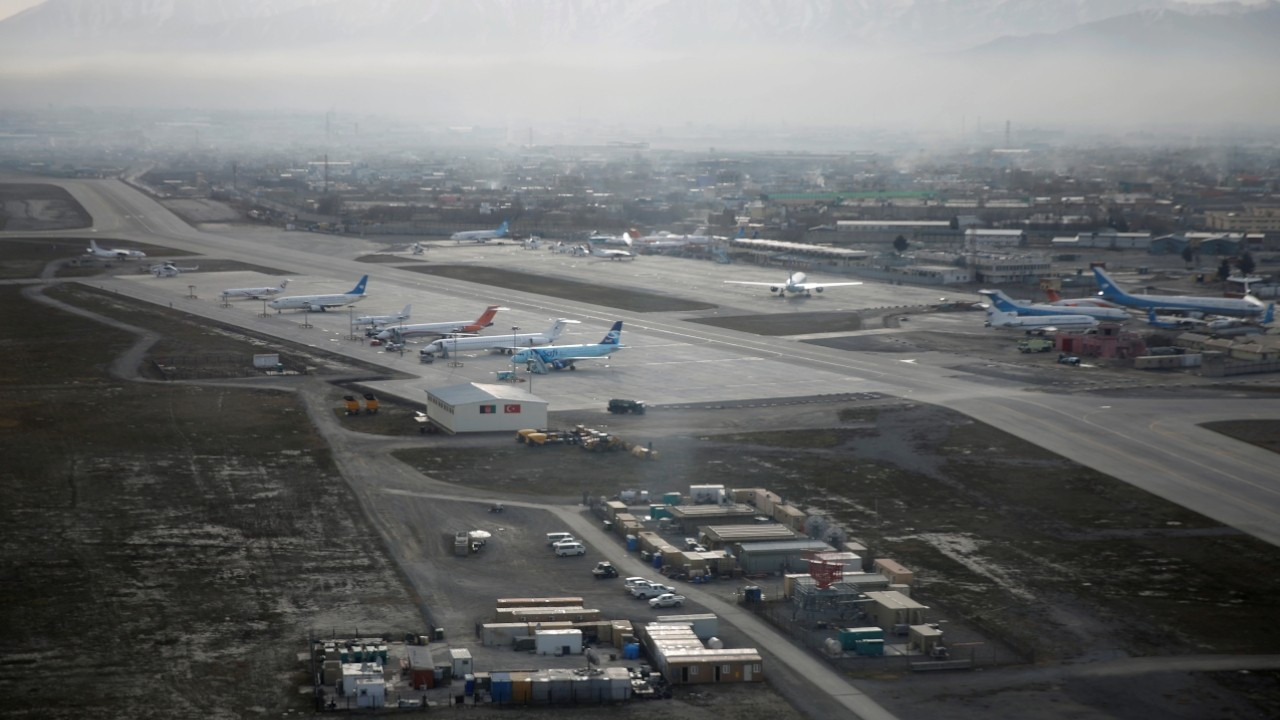Erdoğan is the only one not worried about the Kabul mission
In Afghanistan, the Taliban is returning. The U.S. wants to keep the Kabul airport secure while handing over military bases to Afghan forces and Turkey is eager to take on this mission. Turkey could be the catalyst for a solution in Afghanistan if everything goes smoothly, but, given the circumstances and demands put forward, Erdoğan’s bid is shooting itself in the foot.
There is no way to sugar coat the 20-year occupation of Afghanistan as a success story. The Taliban, which was said to be ‘destroyed,’ is now returning right out in the open. American forces want to keep the Kabul airport secure as a gateway for diplomatic, military, and intelligence operations while handing over six military bases, including Bagram, to Afghan forces. Turkey is now eager to take control of this mission.
While President Erdoğan is offering to be NATO’s ‘soldier,’ he has expectations of military, financial, logistical and political support, as well as the closure of the S-400 file. The U.S. technical team has arrived in Ankara, held talks, but there are no results yet. Defense Minister Hulusi Akar, who was recently in Kyrgyzstan and Tajikistan, said, “There has been no decision made as of yet. We will continue to maintain contact.”
The Americans have no intention of including the S-400 issue in the deal and President Joe Biden has limited room to maneuver because the S-400s are subject to legal sanctions.
There are clear objections to Turkey’s increased role. There are those who would prefer to postpone such a decision until later and determine a position depending on what the mission will bring. Let us assume a deal has already been struck for the Kabul mission. What kind of internal and external environment awaits Turkey there?
Erdoğan is expecting military-logistical support, but the conditions for this have not been established. According to U.S. sources, up to 650 troops can be left behind with the mission to protect diplomats. In addition, several hundred U.S. troops can remain at the airport until the Turkish military mission is established. Black Hawk helicopters can be used to transport diplomats between Kabul and the airport. The Americans are also guaranteeing intelligence support. Afghan air control teams must also be trained to replace private operators at the airport.
Biden has pledged 266 million dollars in humanitarian aid and 3.3 million dollars in military aid to Afghan President Ashraf Ghani, whom he hosted at the White House on June 25. These figures do not matter much. We do not know what kind of a package would be offered for the Turkish mission.
Meanwhile, the U.S. is looking for military bases in neighboring countries to protect its allies in Afghanistan, deter the Taliban, and guide the political process, regardless of Turkey’s expectations. Effective intervention requires bases in neighboring countries. Military bases located in the Gulf are too far, hampering effectiveness. Special representative Zalmay Khalilzad made initial contacts in Uzbekistan and Tajikistan in early May, but no one has opened their door as of yet. Russia is not in favor of the Americans camping in their backyard. China is also agitated. They do not want the U.S. to make a bed in Asia for their strategic encircling policy. Both countries are pitting their friendly countries in Central Asia against the U.S.
Kyrgyzstan and Uzbekistan did not oppose U.S. demands for military bases in the immediate aftermath of the 9/11 attacks. The U.S. used Uzbekistan’s Karshi-Khanabad Air Base until 2005 and Kyrgyzstan’s Manas Base until 2014. At the time, Russia and Iran were on the side of the U.S. against the Taliban. When Iran was labeled ‘evil’ and added to “The Axis of Evil,” Russia, as interventions began in its backyard via ‘colorful revolutions, changed their policies from 2003-2004. Russia hosted the Taliban in Moscow several times as part of the inter-Afghan dialogue, while Iran has adopted a more flexible approach to its own security. Iran has welcomed U.S. withdrawal. Iran’s priorities are to avoid activating ethnic fault lines within its borders and to support Sunni militarism. They also do not want any new refuges in addition to their existing 3 million. They also do not want new conditions to be imposed against the Shiite Hazaras. Iran would accept a government option which provides reassurances on these issues.
Russians do not want to do favors for the Americans who were making things difficult for them in Syria and did not let them be in Ukraine-Crimea. China was also happy with the collapse of the Taliban, which supports the Turkistan Islamic Party. In addition, Beijing wants a stable Afghanistan for the future of the Silk Road routes. Beijing plans to extend the China-Pakistan Economic Corridor to Afghanistan. India was also happy the Taliban was gone, because of the movement Pakistan supported to turn Afghanistan into a puppet state. India supported the North Alliance against the Taliban, led by Ahmad Shah Masoud. India feared that Afghanistan would become a vessel of Islamist militarism.
If the Turkish mission is to be a barrier to the Taliban’s invasion of Kabul, there should be no objections from countries in the region such as China, India, and Iran. However, assumptions regarding what or who the Turkish mission will serve are murky. Turkey’s utilization of Islamist militias in its foreign policy is also encouraging skepticism.
Nobody is in a hurry to draw red lines today based on the conditions 20 years ago. These actors want to see how different the Taliban have become in 20 years. Uzbekistan’s main fear, for example, was that the Islamic Movement of Uzbekistan would become a threat with the support of the Taliban. The movement is no longer considered a threat. After Islam Karimov, Tashkent increased its interaction with Uzbeks in Afghanistan, reducing their fears. A more interesting development is that the Islamic State (IS), which has made the Taliban look like saints, has infiltrated into hardline Islamist voids in Afghanistan. ISIS continues to be an immense fear for everyone and there are segments who see the Taliban as the force to stop it. Pakistan, a Taliban supporter, is also indecisive. Pakistan does not consider plans to put the Taliban in power anymore because it would not be worth torching its own diplomatic relations. Of course, the assessment of the political leadership may not reflect the preferences of the military and the intelligence. The Americans' pursuit to establish an intelligence base in Pakistan has been plainly rejected.
The Taliban seem to have learned their lesson this time. There is no change in their targets: They want an Islamic emirate and sharia order. However, this time they are aware of the local, regional, and international dynamics. In 1996, while they overcame the mujahedeen who were fighting with each other, they used madrasa students to seize power.
Pakistan was their main foreign supporter. According to local sources, the Taliban has invested in different ethnic groups and local groups over the past 20 years, although Pashtun has maintained its majority. With a pan-Afghan appearance, they have also absorbed Tajiks and Uzbeks. Their ties to al-Qaeda, which was the justification for the 2001 invasion, are still in question, but they give the impression that they are ‘national’ or ‘Afghani’ because they limit themselves to Afghanistan and distance themselves from the global jihad network. This is important for foreign relations in the post-occupation period.
Turkey is relying on Pakistan’s influence over the Taliban for its Kabul mission. So far, there has been no sign that the Taliban’s position has changed. Recently, Taliban spokesman Mohammed Naeem told Rûdaw, “The issue of foreign forces and their withdrawal has already been finalized. As per our agreement [with the US], all forces have to withdraw except for diplomatic missions. This issue has been finalized. Anyone who wants to stay in our country, we will definitely see them as invaders. They should not stay here with a military force.”
Unless the Taliban’s position changes, Islamabad’s open support for Turkey could cause trouble internally for Pakistan. Before a joint government is formed based on an agreement between the Taliban and the Afghan government, a military mission based on one side’s approval cannot be spared from the clashes.
The Taliban are now playing their own game as international forces are withdrawing. Turkey’s blockade-like deployment is an undesirable option for the Taliban. Their messages reflect that they do not want hostility with Turkey; however, in the ‘Graveyard of Empires,’ rules are strict. If the brotherhood of religion was sufficient, then the mujahedeen would not have been fighting each other. Turkish presence may be meaningful in that it would encourage moderateness and peace between the parties. However, it may also become the target itself.
When the Biden administration extended its May 1 withdrawal to September 11, it was expecting peace talks between the Afghan government and the Taliban to come to an end. At the same time, they were avoiding defeat scenarios. The Taliban, which secured the release of 5,000 detainees because of the February 29, 2020 agreement, ended peace talks because the May 1 pledge was not kept. Because of this, the Istanbul meeting to be hosted by Turkey did not take place.
A reality that makes everyone nervous, but somehow does not seem to worry Erdoğan at all, is that the Afghan government forces are falling apart against the Taliban. The ‘nationality’ of the security network in the country is a huge sham. Corruption permeates all levels; bribes are guaranteed rather than services; positions are sold; commanders and superiors accumulate wealth with salaries attributed to ghost soldiers and policemen; military, technical and logistical goods are lost and troops are left without equipment. This situation guarantees defeat in favor of the Taliban. As the Taliban expand their control, they are increasing their financial power through seizing critical trade routes, mines, gas and oil facilities. This is the result of the attempt to reconstruct a defeated country. The assets of the country have been looted, while positions and locations are shared. Iraq and Libya have suffered from the same malice. The new Iraqi army, trained and equipped by the United States, had also left Mosul to ISIS and fled.
At least five districts had fallen under Taliban control in the last week in Badakhshan province, which borders Tajikistan, China, and Pakistan in the northeast. Fighting continues in Herat, on the border with Iran, as well as in Vardhak and Ghazni. In the past three weeks, government forces have lost control of all districts bordering Uzbekistan and Tajikistan. According to independent sources, 133 locations have been taken under Taliban control in the past two months. This means out of the total 407 districts, 190 are in Taliban’s hands.
Then there’s the civil war scenario. Gen. Scott Miller, a U.S. commander, is among those predicting a civil war due to the Taliban’s advance. In a possible civil war, Kabul airport will become a very valuable target.
The former warlords, once a favorite of the CIA, are now preparing to return to the days of the mujahedeen to pursue their interests, the ones they lost during the 20-year of occupation.
On June 2, President Ghani met with former mujahedeen leaders and called for a united front. This call paves the way for militia mobilization outside government forces. Mohammed Ismail Khan, who became a government minister when he was the Emir of Herat, called on the former mujahedeen to take up arms and stand up to the Taliban. Ahmed Masoud, son of Ahmad Shah Masoud, also addressed the crowd at a ceremony in Kabul on May 5, saying, “If our nation is forced into a military solution, we are ready for war.” There are other similar calls. Members of the government are talking about handing out weapons to volunteers. Although it is not yet clear what will happen, this mobilization has already been dubbed the “Second Resistance.”
The Taliban also threatened those who joined the former mujahedeen’s call for resistance, saying that “the Emirate of Islam will not show you mercy.” They called on families to “Keep your children away from these warlords.” The Taliban’s record regarding punishment is bloody and brutal. There are examples of mass executions where 1,000, 2,000, 3,000 people were killed at a time. In the north, the Taliban’s enemies also have a dark record. For 20 years, the former mujahedeen were trying to assimilate to the official security units, but now this is a return to square one. The mobilization of mujahedeen groups, many of which are ethnically based, recalls the internal conflicts of the 1990s. The situation looks dark.
The Office of the Director of National Intelligence report dated April 9, 2021 says, “Kabul continues to face setbacks on the battlefield, and the Taliban is confident it can achieve military victory. The Taliban is likely to make gains on the battlefield, and the Afghan Government will struggle to hold the Taliban at bay if the coalition withdraws support.” That was the prediction for the next 12 months. In the first month, the situation changed and ‘setbacks’ were replaced by defeat.
On the day Biden announced their withdrawal schedule, Mir Rahman Rahmani, Speaker of Afghanistan’s House of the People (Wolesi Jirga, the House of Representatives) was more pessimistic. His predicted that Afghanistan could return to the days of a dangerous civil war; Afghanistan would again become a region for international terrorism while drug production and trafficking will finance the terrorists’ war.
Are these predictions a matter of consideration in Erdoğan’s calculus of probabilities as he expresses his eagerness to become a soldier in Kabul?
Is it the same belief that led the entire consular staff to become hostage to ISIS when they seized Mosul in 2014? It was the thought that “our Muslim brothers will not harm us.” Will that belief work for the Taliban also?
Does Erdoğan feel a closeness to this structure that he is sure to convince the Taliban in any case? What is the reason for his confidence in entering a region the rest of the world regards as a quagmire?
If there is diplomatic skill, political weight, military operational capability and peace experience to appease and assure all concerned parties, then, of course, Turkey could go down in history as the catalyst for a solution in Afghanistan. But, given the circumstances and demands put forward, this bid is shooting itself in the foot.


 Erdoğan's remarks on Kabul airport misinterpreted: AfghanistanDiplomacy
Erdoğan's remarks on Kabul airport misinterpreted: AfghanistanDiplomacy US envoy stresses necessity of rule of law, freedoms in Independence Day messageDiplomacy
US envoy stresses necessity of rule of law, freedoms in Independence Day messageDiplomacy